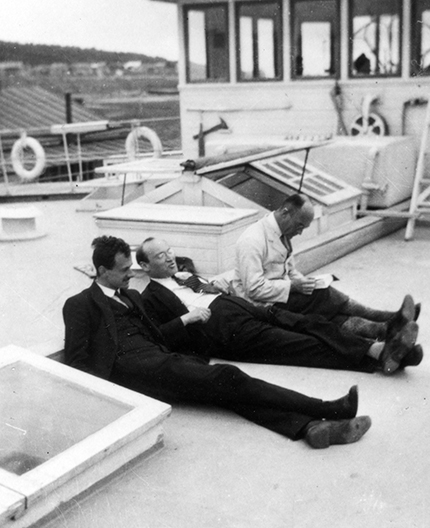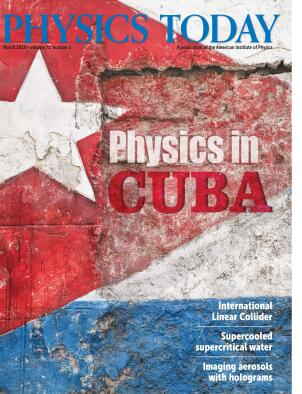Physics and human rights
DOI: 10.1063/PT.3.3857
“In 1989 I had the privilege to travel to the International Center for Theoretical Physics at Trieste, Italy. Besides other things, I watched in the Italian television how the China government sent war tanks against the students in the Tiananmen Square. When I returned to Cuba, I discovered that all the Cuban media, totally controlled by the government, lied about what happened in Tiananmen.”
The opening quote comes from the personal website of Texas Tech physicist Luis Grave de Peralta. The Cuban government’s whitewashing of the Tiananmen Square Massacre spurred him to resign from the Communist Party of Cuba, an action that cost him his job at the University of Santiago de Cuba. Out of work, he wrote a book critical of the Cuban government, an action that caused him to be sentenced in 1992 to 13 years in prison. Intervention on his behalf by the US National Academy of Sciences, Amnesty International, and Congressman Bill Richardson led to his release and expulsion to the US after he had spent nearly four years behind bars. At first, the Cuban government denied exit visas to his wife and two sons. They joined him in the US in 2008.
On page 48
International scientific collaboration is virtuous, even with physicists who live under regimes that violate their citizens’ human rights. Two years ago, Feder wrote about a collaboration between geophysicists from France, the UK, and the US and a team from arguably the most politically oppressed country on Earth: North Korea. Brokered by the American Association for the Advancement of Science, the collaboration sought to evaluate the threat of an eruption by Mount Paektu, a volcano on North Korea’s border with China (see Physics Today, February 2016, page 20

On a boat in Russia in 1928 were (from left) Paul Dirac, Yakov Frenkel, and Alfred Landé. (Courtesy of the AIP Emilio Segrè Visual Archives.)

Should physicists discount human rights when weighing international collaborations? We are all entitled to set our own personal political limits, as Paul Dirac evidently did. Known for his single-minded devotion to theoretical physics, Dirac was also an enthusiastic traveler, especially to the Soviet Union. In his biography of Dirac, The Strangest Man (2009), Graham Farmelo describes the warm and fruitful interactions that Dirac had with Igor Tamm, Peter Kapitza, and other Russian physicists. Farmelo also noted that Dirac was likely ignorant of Joseph Stalin’s mass-murderous collectivization campaign of 1928–30 and his Great Purge of 1937–38.
But there were limits to Dirac’s internationalism. To converse and collaborate with German physicists, Dirac had learned German. In 1933, after Hitler came to power and promptly began persecuting Jews and others, he vowed never to speak the language again.





